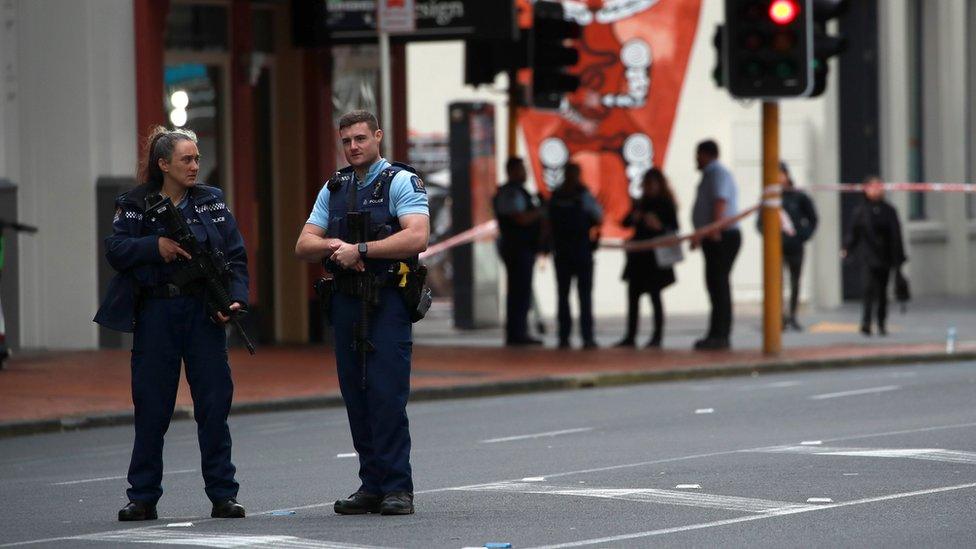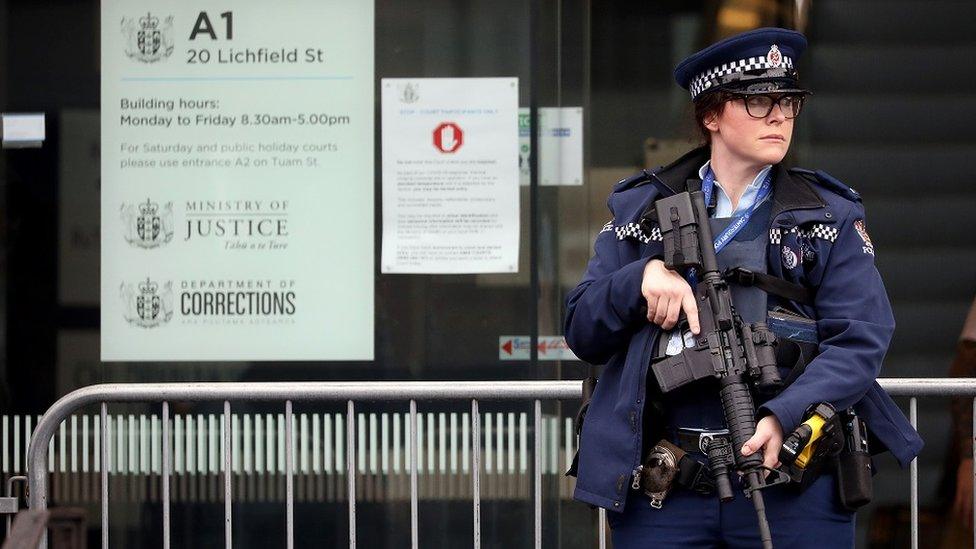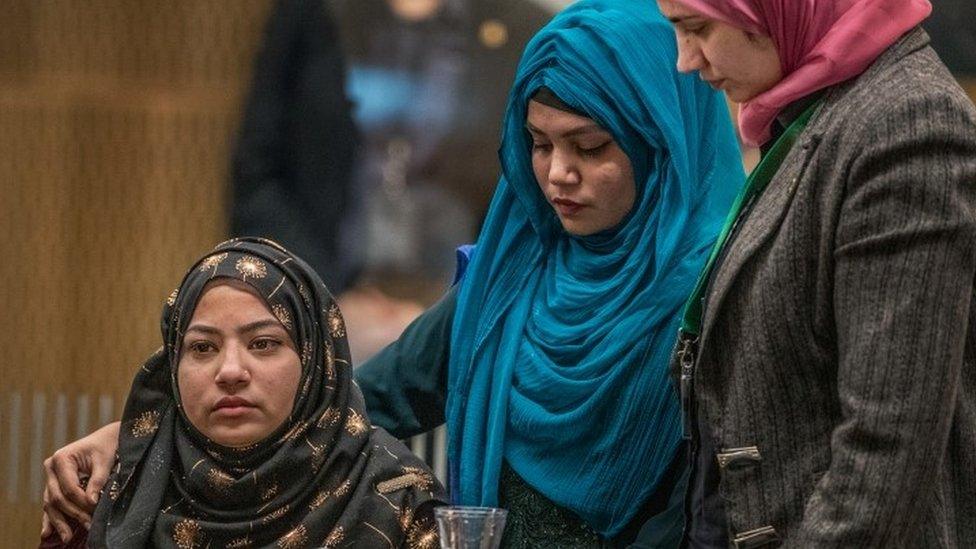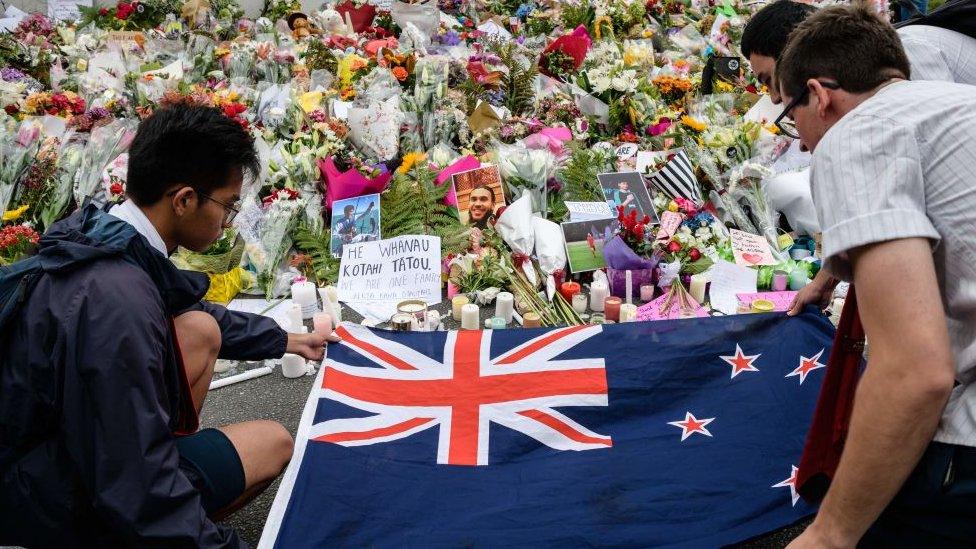Auckland shooting: Renewed debate on rising NZ crime rate
- Published

Police stand guard at a cordoned off area near the site of a shooting in Auckland, New Zealand
New Zealand police have named the gunman in the Auckland shooting that killed two and injured at least 10.
Police say Matu Tangi Matua Reid, 24, was under house arrest and has a history of domestic violence.
The incident - in a country where gun violence is extremely rare - has reignited a debate about the rising crime rate in New Zealand.
With a general election due in October, many political parties have campaigned to get tougher on criminal offences.
New Zealand has some of the strictest gun control laws in the world.
It tightened the regulations after the 2019 Christchurch shooting - the nation's deadliest attack - that killed 51 Muslims.
Four years ago, Brenton Tarrant, an Australian citizen, stormed two mosques while armed with military-grade semi-automatic weapons, and live-streamed the shooting on Facebook.
Within weeks of the incident, authorities passed a law banning the type of weapon he used.
In 2020, New Zealand enforced even tougher gun control, making it more difficult for people to own, buy, or sell firearms.
The latest incident, which took place on Thursday morning local time, involved a pump-action shotgun. It is unclear how Reid came into possession of the firearm as he did not own a license.
He had moved through a construction site floor-by-floor in downtown Auckland while firing his weapon,
Two people were killed, while injuries sustained by 10 other victims ranged from moderate to serious.
Upon reaching the upper levels of the building, Reid barricaded himself in an elevator and shot at police officers, authorities said. The gunman was later found dead, but it is unclear if he died from the exchange of fire or if he had shot himself.
Prime Minister Chris Hipkins said that while the incident was shocking, there was no wider security risk, and that the shooter did not appear to be ideologically or politically motivated.
Police Commissioner Andrew Coster added that the shooter had been put on home detention for domestic violence, but had approval to travel to the building site where he had previously worked.
He noted that the gunman had indications of a mental health history, but that there was no evidence that he was of "high lethal risk" to the public.
Social media was awash with tributes to the victims, but some are also questioning if there is a bigger problem facing the country and its capital city.
The question being asked by many is: "How on earth did he get access to a firearm. He clearly didn't have a license."
"NZ has sure gone downhill the past few years. Too much crime these days for such a small country," a top-liked comment on Facebook reads.
With a general election just months away, political parties have been campaigning to get tough on crime, according to Hannah Short, a civil litigator in Auckland.
She told the BBC that while gun violence in New Zealand is still relatively rare, the country has experienced a fairly significant increase in crime recently, with gang membership going up in recent years.
"The public definitely see this as another example of crime increasing. People don't feel safe in downtown Auckland at night anymore," she said. "The city is generally a lot less safe now post-Covid, as a lot more work from home full time," she added.
The incident comes as many football teams gather in New Zealand for the opening ceremony of the FIFA Women's World Cup on Thursday evening, which will go ahead as planned.
Related topics
- Published24 August 2020

- Published26 August 2020

- Published8 November 2022
